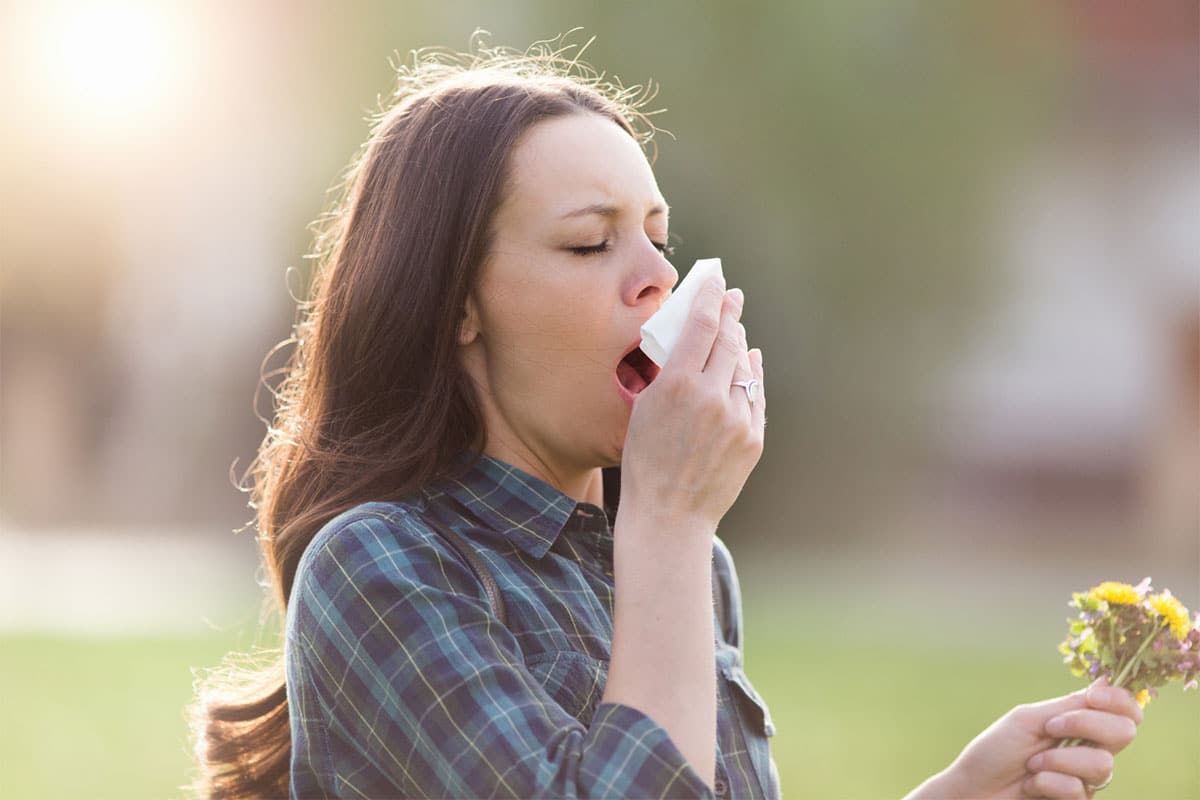Seasonal allergies, also known as hay fever or allergic rhinitis, are a common condition that affects millions of people worldwide. They are caused by an overactive immune system that reacts to certain substances, such as pollen, that are present in the air during certain times of the year.
Symptoms of seasonal allergies can vary from person to person, but common symptoms include:
- Sneezing and nasal congestion: This is one of the most common symptoms of seasonal allergies. Sneezing and nasal congestion occur when the lining of the nose becomes inflamed and swollen in response to the presence of allergens.
- Itchy eyes, nose, and throat: Allergens can also cause itchy eyes, nose, and throat. This can be especially uncomfortable and lead to rubbing and scratching, which can further irritate the skin and cause redness and swelling.
- Coughing: Allergens can also trigger coughing, especially if they irritate the throat or airways.
- Fatigue: Seasonal allergies can also cause fatigue due to the body’s efforts to fight off the allergens. This can lead to a feeling of overall tiredness and a lack of energy.
- Headaches: Allergens can also cause headaches, especially if they lead to nasal congestion and sinus pressure.
Treatment for seasonal allergies can vary depending on the severity of the symptoms and the specific allergens that are causing the reaction. Some common treatment options include:
- Over-the-counter allergy medications: These include antihistamines, decongestants, and nasal sprays that can help to relieve allergy symptoms.
- Prescription medications: For more severe allergies, a doctor may prescribe stronger medications, such as corticosteroids, to help control symptoms.
- Allergy shots (immunotherapy): Allergy shots can help to build up a person’s immunity to specific allergens over time. This can help to reduce the severity of allergy symptoms.
- Home remedies: Some people find relief from seasonal allergies using home remedies, such as using a humidifier to add moisture to the air, taking a warm shower to help clear nasal passages, and using saline nasal sprays to help rinse away allergens.
It is important to note that the best way to treat seasonal allergies is to try to avoid exposure to the allergens that are causing the reaction. This can involve staying indoors on days when the pollen count is high, using air purifiers to remove allergens from the air, and wearing a mask when outdoors.
Overall, seasonal allergies can be a frustrating and uncomfortable condition, but with the right treatment and precautions, it is possible to find relief and manage symptoms effectively.

 Home
Home Health
Health Diet & Nutrition
Diet & Nutrition Living Well
Living Well More
More












